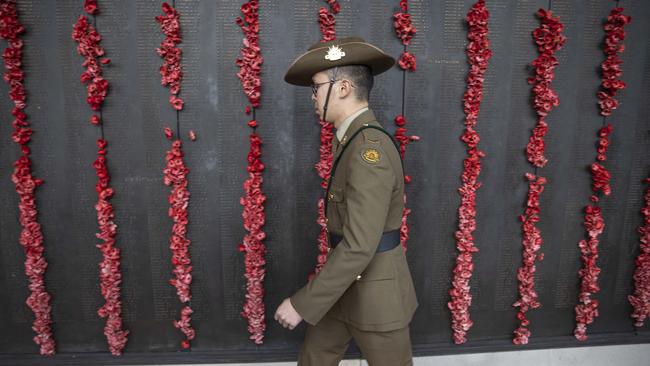The uncomfortable side of Australia’s history has been suppressed since colonisation | Douglas Smith
Although Australia has a shared history, only one side has been told and commemorated, writes Douglas Smith.
SA News
Don't miss out on the headlines from SA News. Followed categories will be added to My News.
The ripple effects of colonisation and the uncomfortable truths are the realities Indigenous Australians live with today. The history of how Australia came to be is traumatising to think of. It rests in the back of our minds and lingers … I know it does for me.
The recent announcement by the chairman of the Australian War Memorial, Brendan Nelson, that a $550m expansion to the institution would include greater recognition of warfare perpetrated against Aboriginal people has ruffled a few feathers.
Some have taken issue with the news because the AWM defines its true purpose as, commemorating “the sacrifice of those Australians who have died in war or on operational service and those who have served the nation in times of conflict. Its mission is leading remembrance and understanding’’.
Just because it is written, doesn’t mean it can’t be changed. As Australia grows, so too will people’s knowledge and curiosity about how this country came to be, and in order for us to grow together, we need to change with the times.
What harm would it really do to anyone if the AWM included such a space for Indigenous Australians to commemorate those who died fighting in Australia’s first wars?

It’s been 233 since the arrival of the First Fleet. With it, came more than 100 years of warfare on land that was never ceded.
It’s hard to know for sure, but estimates put the death toll of Aboriginal people at about 100,000 (not all from conflict), while about 2000 to 5000 colonists were killed in warfare.
Over the course of a century, war was had between Aboriginal people and colonists, but you may not know about it or have even been aware that there was a war in this country.
Why? Because the uncomfortable side of Australia’s history has been suppressed since colonisation, written and recorded by the hands of colonists and ignored at their convenience.
The true history of how this country came to be was not taught in schools, and when it was, it was taught from a white perspective. Although this country has a shared history, only one side has been told and commemorated.
During Australia’s first wars, the Britsh engaged in unsanctioned massacres of Aboriginal people, which in this day and age would be classed as war crimes.
But they couldn’t be war crimes, because, by British law, Aboriginal people were deemed subjects of the Crown because of the lie Australia was founded on … terra nullius.
For Aboriginal people, the land was never ceded, so it wasn’t just “tribes” fighting against British invasion, it was 450 to 500 sovereign nations fighting against the destruction of their families, their 60,000-year-old culture and their way of life.
I dare say that Australia’s failure to recognise and acknowledge what happened was and is because of how uncomfortable the truths are.
Don’t forget, commemorating the Frontier Wars would also include and commemorate people on both sides, Aboriginal and colonists.

Are those who have taken issue with Nelson’s announcement still trying to suppress our history? There are over a million visitors to the AWM per year, a million people who could learn about the true history of this country if such a space was included.
For decades, Australian governments have led national services and activities year after year to commemorate some of the most significant moments in our military history.
This country understands the important role commemoration plays in helping people come to terms with the physical and emotional costs of war. Commemoration is a necessity, for without out, the impacts of war and violence will continue to plague our minds.
There has always been and always will be space to commemorate Australian soldiers who have died fighting for their country, but sadly, the same courtesy is not afforded to Indigenous Australians who wish to commemorate our ancestors, who died fighting for us.
For Indigenous Australians, we are still not healed. That process has been skipped over for us and continues to affect our emotional and physical well-being.
Australia is on the path to implementing a national Indigenous Voice to parliament. The process of Voice, Treaty, and Truth should be taken seriously.
As a journalist and as a descendant of the Kokatha and Mirning nations, I’m all for being involved in the truth-telling aspect of it.
There is an element of healing in a truth-telling process. In this case, the overall gist of it is, Indigenous and non-Indigenous Australians coming to terms with and acknowledging our shared history.
There is no healing without truth-telling.





